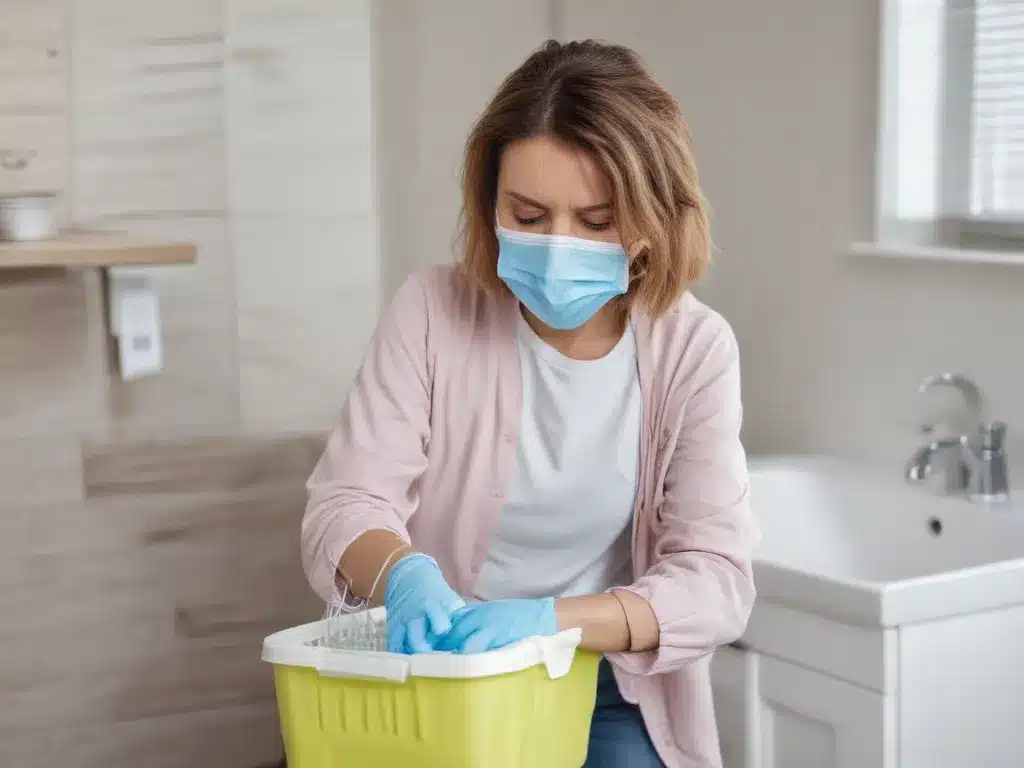Introduction
Maintaining a clean and disinfected environment is crucial for safeguarding the health and well-being of you and your loved ones. As an individual, you have the power to take proactive steps to prevent the spread of illness within your home. This comprehensive guide will delve into the fundamentals of disinfecting, equipping you with the knowledge and strategies to create a safe haven where germs and harmful microbes have no place to thrive.
Understanding Disinfection
What is Disinfection?
Disinfection is the process of eliminating or inactivating harmful microorganisms, such as bacteria, viruses, and fungi, from surfaces or objects. It is a critical step in controlling the spread of infectious diseases and maintaining a hygienic living environment.
Importance of Disinfection
Disinfection plays a vital role in breaking the chain of infection transmission. By effectively disinfecting your home, you reduce the risk of contracting illnesses and prevent the spread of pathogens to other family members or visitors. This practice is especially crucial for individuals with compromised immune systems, elderly individuals, and young children, who are more susceptible to infections.
Choosing the Right Disinfectant
Types of Disinfectants
There are various types of disinfectants available in the market, each with its own strengths and applications. Some common disinfectants include:
- Bleach (sodium hypochlorite)
- Alcohol-based disinfectants (e.g., isopropyl alcohol, ethanol)
- Quaternary ammonium compounds (QACs)
- Hydrogen peroxide
- Phenolic compounds
When selecting a disinfectant, consider factors such as the target microorganisms, surface compatibility, and potential hazards.
Effectiveness and Safety
Disinfectants vary in their effectiveness against different types of microorganisms. It is essential to choose a disinfectant that is approved for use in household settings and follows the manufacturer’s instructions regarding dilution, contact time, and safety precautions.
Proper Disinfection Techniques
Surface Preparation
Before disinfecting, thoroughly clean the surface by removing visible dirt, debris, and organic matter. This step is crucial as disinfectants may not work effectively on heavily soiled surfaces.
Application Methods
Disinfectants can be applied using various methods, such as spraying, wiping, or immersing objects in the solution. Ensure that the disinfectant has adequate contact time with the surface, as specified by the manufacturer, to effectively kill the microorganisms.
Dwell Time
Dwell time refers to the amount of time the disinfectant must remain wet on the surface to achieve maximum efficacy. Different disinfectants have varying dwell times, so it is essential to follow the manufacturer’s instructions carefully.
High-Risk Areas and Frequent Disinfection
Identifying High-Risk Areas
Certain areas within your home are more prone to harboring and spreading germs and should receive special attention during disinfection. These areas include:
- Bathrooms (toilets, sinks, showers)
- Kitchens (countertops, sinks, cutting boards)
- Frequently touched surfaces (doorknobs, light switches, remote controls)
- Shared living spaces and common areas
Frequency of Disinfection
The frequency of disinfection depends on several factors, such as the level of activity, number of occupants, and presence of individuals with compromised immune systems. As a general guideline, high-risk areas should be disinfected daily or at least weekly, while other areas can be disinfected on a regular basis or when visibly soiled.
Specific Scenarios and Best Practices
Disinfecting During Illness
If someone in your household is sick, it is crucial to step up your disinfection efforts to prevent the spread of illness. Regularly disinfect shared spaces, bathrooms, and frequently touched surfaces. Additionally, consider designating a separate bathroom for the sick individual, if possible.
Disinfecting After Illness
Once the illness has passed, it is essential to thoroughly disinfect the entire home to eliminate any lingering pathogens. Pay special attention to areas where the sick individual spent significant time, such as their bedroom and bathroom.
Handling Potentially Contaminated Items
When dealing with potentially contaminated items, such as linens, clothing, or personal care products, follow proper handling and disinfection protocols. Use appropriate personal protective equipment (PPE), such as gloves and masks, and disinfect or dispose of these items according to guidelines.
Maintaining a Healthy Household
Incorporating Regular Cleaning Routines
Disinfection should be integrated into your regular cleaning routines to maintain a healthy living environment. Establish a consistent schedule for disinfecting high-risk areas and frequently touched surfaces, and ensure that all household members are aware of and follow these practices.
Promoting Good Hygiene Practices
In addition to disinfection, promoting good hygiene practices among household members is crucial. Encourage frequent handwashing, covering coughs and sneezes, and avoiding touching the face, mouth, or nose with unclean hands.
Seeking Professional Assistance
In certain situations, such as after a major illness outbreak or when dealing with specific pathogens, it may be beneficial to seek professional assistance from a reputable cleaning and disinfection service. These experts have the necessary knowledge, equipment, and protocols to ensure thorough and effective disinfection.
Conclusion
Disinfecting your home is a powerful defense against the spread of illness and the promotion of a healthy living environment. By understanding the principles of disinfection, choosing the right disinfectants, and following proper techniques, you can significantly reduce the risk of contracting and transmitting infectious diseases. Remember, consistent and diligent disinfection practices, combined with good hygiene habits, will create a safe haven where you and your loved ones can thrive.







